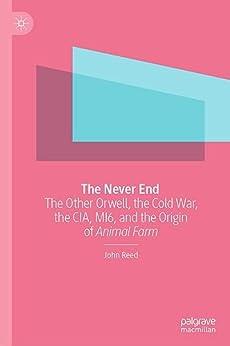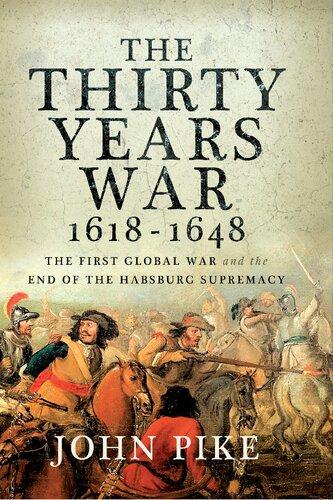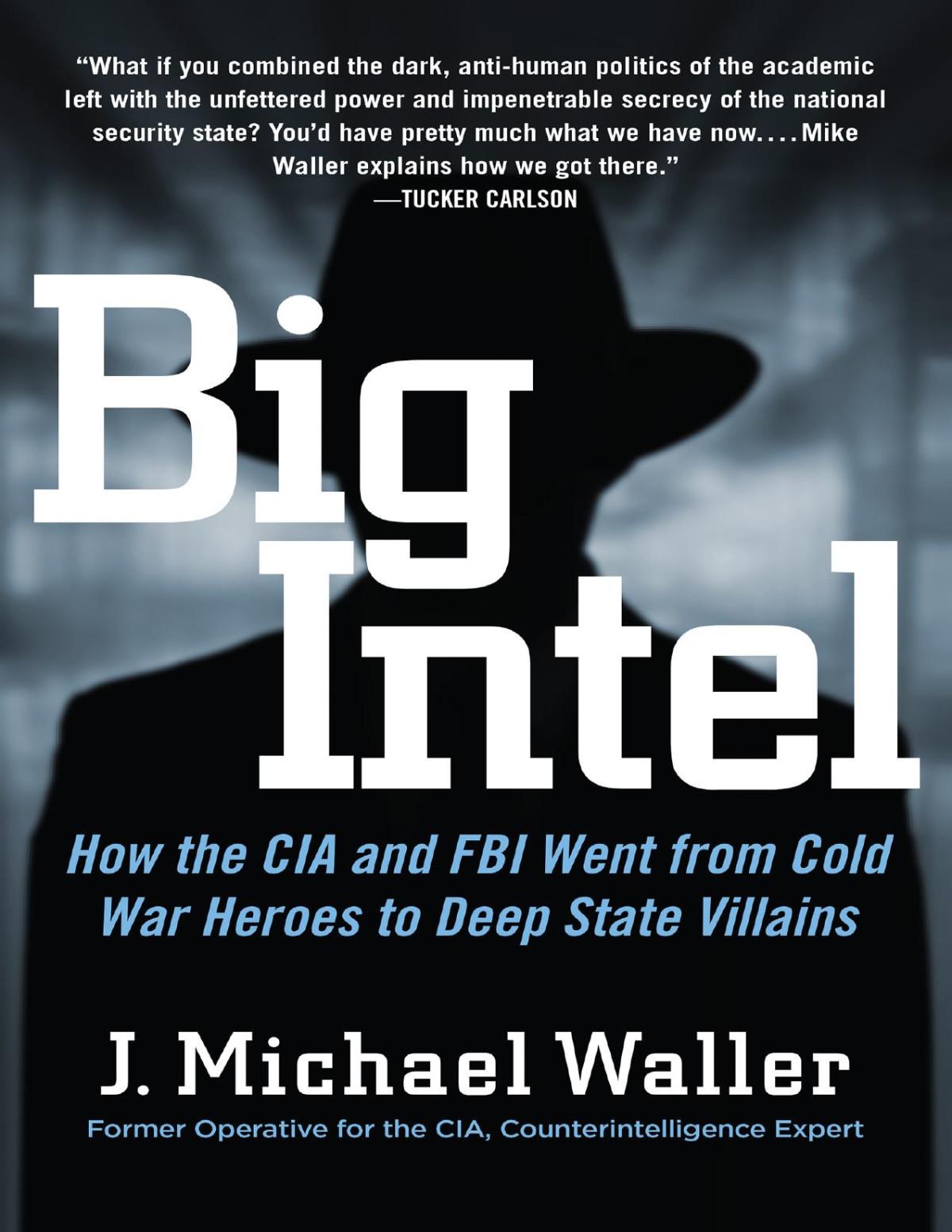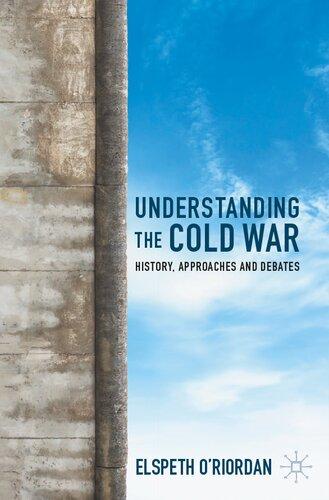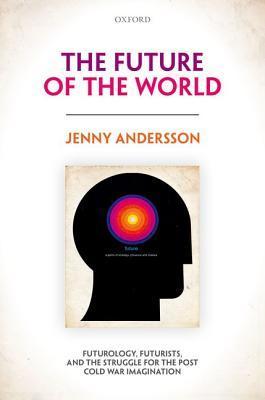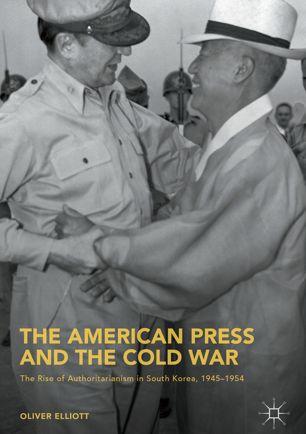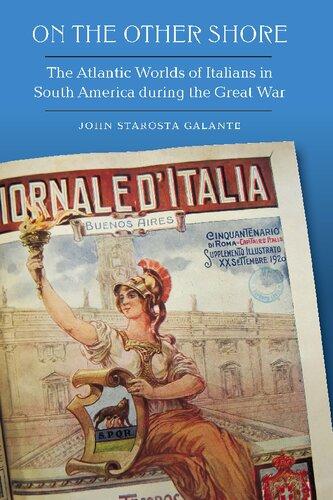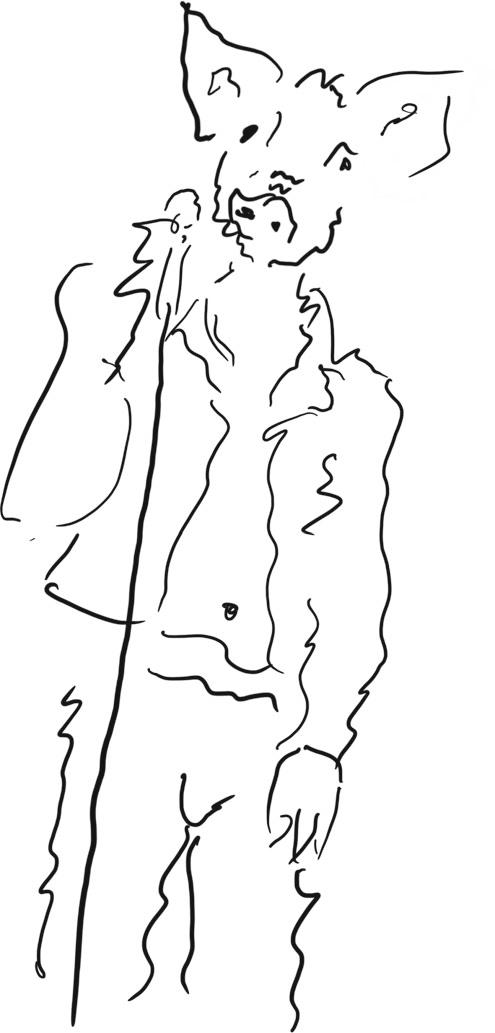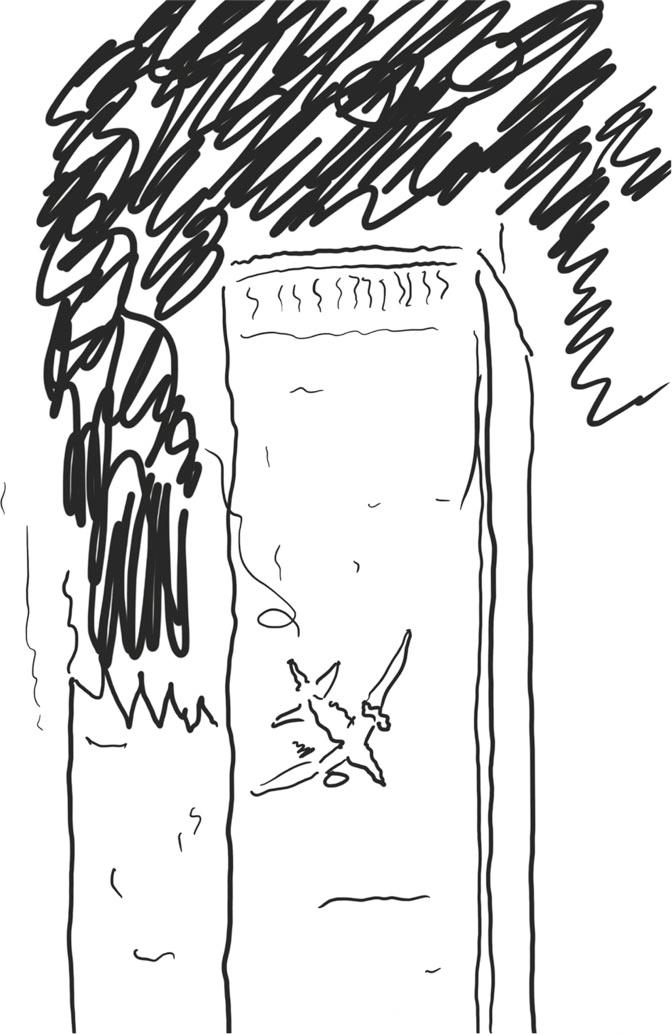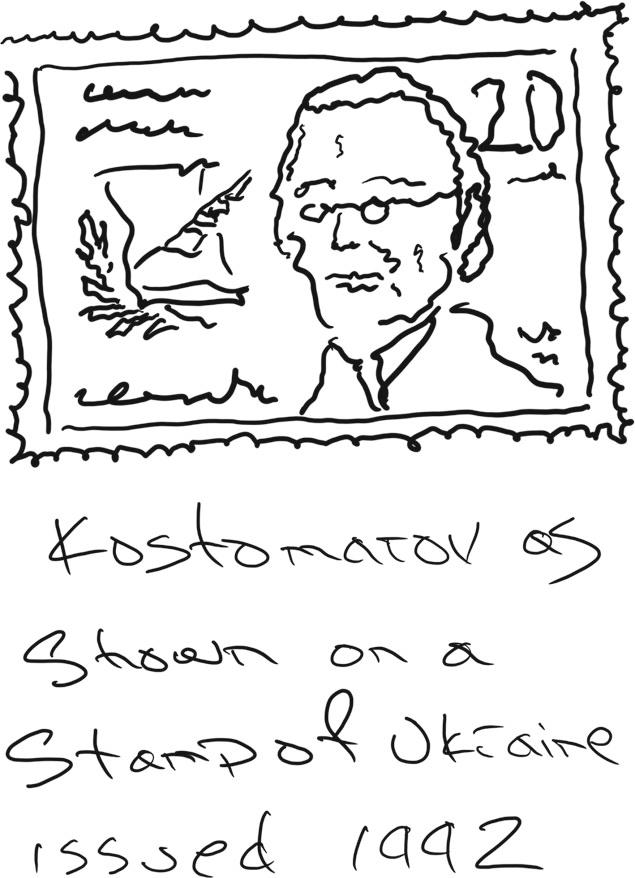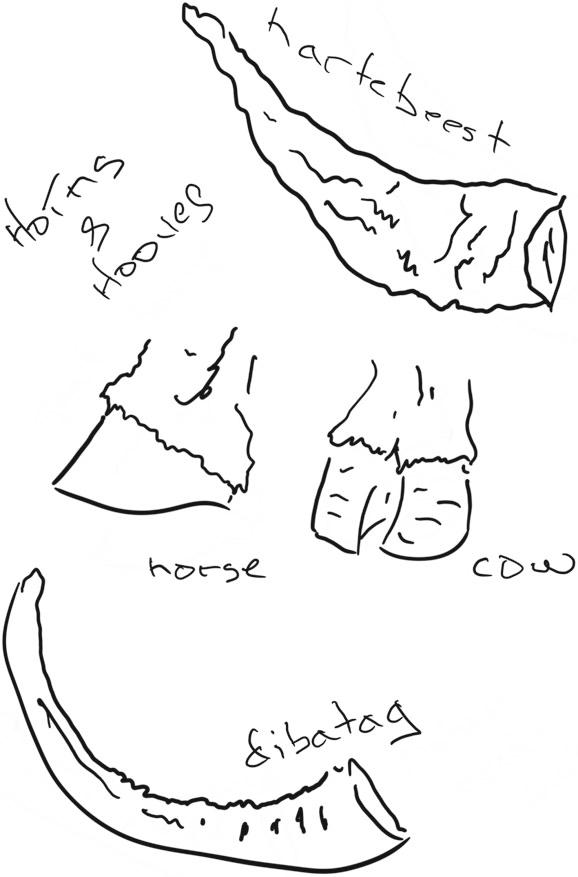The Never End
God save the Queen The fascist regime
They made you a moron Potential H-bomb
God save the Queen She ain’t no human being 1
The Sex Pistols. 1977. I was a kid, but I might have heard the song around then. They made it to the States at the end of the year, and I was a downtown creature, from downtown creatures. My mother was singing at the Mudd Club.2
There’s a black ribbon bash in history perplexing you and vexing me Come on, it’s stacked up to be the best party in town
1 “God Save the Queen.” Never Mind the Bollocks, Here’s The Sex Pistols .Virgin, A&M, 1977.
2 A nightclub located at 77 White Street in Tribeca, open from 1978–1983. Lyrics from a poem by the singer, artist Judy Rifka: originally published in a chapbook of poems and illustrations by Rifka, Cheap Today , which was edited by Judith Doyle and published by her press, Rumour Publications (Toronto, 1979).
© The Author(s), under exclusive license to Springer Nature Singapore Pte Ltd. 2023 J. Reed, The Never End, https://doi.org/10.1007/978-981-99-0765-6_1 1
Meltdown to the Black Ribbon Bash
Meltdown to the other side of town
Whenever it happened exactly, I remember the impact of The Sex Pistols. They were crude, unmusical, doomed—but they were right. The Queen was inhuman.
2022. I’m pulling the essays together for this publication: the Queen dies. I have all kinds of thrilling delusions about the end of the global monarchy. Too bad. Anyhoo, it’s about time.
As it is for George Orwell. The writing here spans twenty years; some of my early essays strike me as screechy, high-pitched in their rage. Revise? Expel? As I mulled over what to compile and what to exclude, I remembered the tone of the early 00s; when I said Orwell wasn’t the benevolent white savior that we’d made him out to be; that he’d been complicit with the CIA, etc., and that, however intentionally, a campaign against revolution, and for that matter political change, had originated in the farm animals, or, “the proletariat,” as Orwell might have identified them in his youth. I had the evidence—in overwhelming plenty. Orwell’s collaborations with the Congress for Cultural Freedom (CCF), the British Secret Service, and what was to become MI6— all that was already known. Animal Farm ’s massive distribution as front-line, Western propaganda in the Cold War. And Orwell’s lists.
And I had the motivation. 9/11. The skyline of my childhood. Just down from where I lived on Lafayette Street in 2001. And an out-the-window view from PS41, where I read Animal Farm over and over again, second through fifth grade, and was pummeled with the message: all revolutions are destined to fail; we’re just too greedy and dumb; we will always be our own worst enemy.
True? An appeal to torpor? Maybe, maybe. But a tool, regardless, to quash the radical impulse, to instruct would-be reformers—in the case of Animal Farm , literally the youth of the world—in the philosophy of political and cultural resignation, and conformity.
Saying that in 2002 roused hysteria. Orwell was a great man: the great common man; the great voice of reason; the great torch bearer of truth. Ad infinitum. And my early essays are tormented, in response, fevered and panting,3 shouting up to people atop a wall who are shouting down, with bullhorns.
Shortly after Snowball’s Chance 4 came out, 2002, I walked the block and a half to Cooper Union to listen to Christopher Hitchens talk about Orwell. His recent book, Why Orwell Matters , 5 was a whitewash of Orwell (the
3 Alex Cockburn, who wrote the introduction to the first edition of Snowball’s Chance , also evidenced this hysteria in the Orwell discussion of the 00s.
4 Roof Books.
5 Also Orwell’s Victory . Basic Books, 2008.
blacklists/enemy lists that Orwell wrote and handed over to the Information Research Department were the literary scandal of the moment), and a reframing of the Cold War, which was a term Orwell coined, or at the very least popularized. Orwell’s “Cold War” was with Russia, China, and communism in general. The new Cold War, Hitchens’ Cold War, was with the Islamic world.
The Orwell estate had threatened to sue, I guess, me and my publisher, on the grounds that Snowball’s Chance wasn’t a parody, and the book had gotten a splashy press reception as a result (albeit via a small publishing house—the threats of the Orwell estates, in terms of normative distribution, had worked). On stage, Hitchens said something scornful about me—that I was named for the John Reed who wrote The Ten Days that Shook the World —and during questions, I introduced myself from the audience, to a collective gasp, and engaged him from there.6
After the event, in our interaction, Hitchens was polite, affable. We spoke together, and one after the other to Rachel Donadio, then of a conservative local New York City newspaper, where she published a sectarian bit of coverage7 that I was nonetheless grateful for. Hitchens, after our individual chats with Donadio, promised me a steak and a bottle of Irish whiskey; he reiterated those promises when I “debated” him on the BBC . My mic kept going off. (I would have a chance to redeem myself on another BBC program.8 ) Over the years, I’d see Hitchens around, but he had the poor etiquette to die before he handed over my bottle of Ardbeg.
Some of Orwell’s magic rubbed off on Hitchens; to this day he is revered. Personally, I liked him, and I liked talking to him, even if he was a drunk rambler and his later successes as a pundit stemmed primarily from his ability to make no sense whatsoever. In talking to me that first time on the BBC ,for example, he kept implying I was making a point about a walking stick; Orwell had or hadn’t hit someone with a walking stick? Or something? A reference to some ancient spat I couldn’t care less about.
Nevertheless, from that interview on, I was in. Hitchens called me a “Bin Ladenist,” haha, and that would become my casting call: rabid leftist. I didn’t really fit, of course,9 and my critique of Orwell’s collaboration was more perfunctorily factual than anything else; Hitchens and his teammates were apologists, and their attempts to recast the Cold War in terms of Islamism were strained and frail.
6 I was probably named for my great uncle, John August Reed, a prominent architect of California modernism—but I wouldn’t be surprised if the literary John Reed figured in.
7 [Title unknown]. The New York Sun , November 7, 2002. “Snowball’s Chance is premised on the belief that Orwell’s Allegory was a piece of Cold War Agitprop.”
8 BBC Radio: November 27, Today Show; November 28, World News Report
9 I’ve been told there’s a Chinese proverb: “do not name the well from which you do not wish to drink.”
Their argument, if not exactly indisputable, was also not exactly new; I’d first heard the inklings of their points in the 70s, when I was back in PS41 in fourth grade, being asked to interpret the Iran Hostage Crisis re: Animal Farm . The teacher would bring out Animal Farm and apply it readily to any revolution (Iran, China, whatever)—with a fatalism that was part patriotism, and part capitulation: the pigs were of another cast. That any wrong, intellectual or personal, could be ascribed to George Orwell was heresy.
Cut back to Cooper Union, 2002: mealy white men with greasy hair scolded me from seated rows on all sides. What I was saying, in Snowball’s Chance , was an affront to the integrity of contrarians everywhere (who, despite their avowed independence, parroted Orwell endlessly). In picking up the subject of Animal Farm , I had inadvertently questioned the legitimacy of Hitchens’ own turn to the right (which was the wellspring of his newfound popularity). Much as Orwell’s later life success had been delineated by his collaboration with a far-right agenda, so was the case for Hitchens. And in fact, the rightest turn of the elder white man would be paradigmatic of the coming century: politics over facts, history, or reason. Looking back at two of my early essays, collected here, one can map the trajectory:
Orwell’s defenders always look to contextualize Orwell’s shortcomings in a historic moment. Whatever his infraction, he was a victim of circumstance— times were different then, and, for example, Hitler was looking really good for a minute there. Orwell never meant that his books should be employed to stultify schoolchildren. And yet that’s what Animal Farm is—an educational missile aimed at any healthy impulse toward reform. The argument that Animal Farm is a generalized indictment of totalitarianism is simply unsupportable by the text or any existing presentation of the text. Rather, the intelligence of the pigs as opposed to the stupidity of the other animals, and the ultimate hopelessness of revolution, renders Animal Farm a de facto endorsement of the status quo.10
Demonstrating a consistent lack of aptitude for “the power of facing,” Hitchens just dismisses the work of anyone he disagrees with. Salmon Rushdie, Edward Said, Martin Amis, etcetera—all wrong, foolish or deceitful. Hitchens’ rule is, if it’s minor, concede it, if it’s major, say it’s minor. In his hiccup of a chapter discussing the most disputed issue of the Orwell legacy, Hitchens poohpoohs the list of 135 names that Orwell wrote up in the capacity of an informer for the “Information Research Department” (of the British Secret Service). To Hitchens, Orwell didn’t mean any harm, and probably didn’t do any harm, and the thirty-five names not yet released by the British government don’t indicate an obfuscation of something untoward, such as a “blacklist,” but rather, the “inanity of British officialdom.” Of the list that has been released, Orwell’s bluntly racist, anti-Semitic, and homophobic asides are similarly submitted to Hitchens’ power of sidestepping. … Regardless of whether or not Orwell did make, or would have made, or would have recanted a turn to the right, Orwell, to Hitchens, is little more than self-justification. As much as Hitchens models
10 “Saint George and the Damn Truth.” MobyLives /Melville House Publishing, November 10, 2003.
himself on Orwell, one can’t dispel a notion that Orwell probably wouldn’t have liked Hitchens, either. Employing Orwell to bludgeon dissent, Christopher Hitchens has firmly positioned himself among the legions of “smelly little orthodoxies” that Orwell considered “a pox on the twentieth century.”11
I wonder now about the shrillness of my delivery; my reluctance was showing. But if Orwell esoterica wasn’t my foremost interest, I eventually realized that, in part, it was my calling. In the fashion of writer as hero, so principal to the mythos of George Orwell and his imitators and acolytes, I would fashion myself a reluctant hero, a lone-wolf voice, a man of ethics standing alone in a storm of hypocrisy—but with two decades of Orwell, my youthful fervor, my readiness to take up this cause, was overcome by dissociated resolve. It seemed I was the one.
When the pandemic began, I would go out each night to play my trumpet on the back porch of the old house where we were staying. With the very old house came a very old tree, which overhung the porch, and listened to me noodling in the blues scale. On an evening a few weeks into this, the tree looked down at me, as it might to one of its many squirrels, and said, “Thank you for playing the trumpet for me.” And I said, “I’m not playing for you— I’m just practicing, on the porch.” And the tree said to me, “Thank you for playing the trumpet for me.”
I’m not frothing at the mouth over Orwell. I have my own history with Animal Farm from US public school (not at all like the UK public school—Hitchens made that mistake when we interacted) but I’m not terribly interested in the bickering of Orwell and his generation; I’m much more interested in the creative paradigm. The bickering is little more than the forced (toxic) masculinity that Orwell practiced.12 Alas, I’m probably also guilty of it; I often remember how Christopher Hitchens apologized to me at Cooper Union. He had struck “below the belt” he said, in claiming I was named for the communist author of The Ten Days that Shook the World . It’s easy for me, in all this, to feel self-critical and humiliated; I was right, and history has borne
11 “The Anti-Matter of George Orwell.” The Brooklyn Rail , April–May 2003. A version of this piece is included in this collection.
12 Elisaveta Fen (Lydia Jackson/née Lidiia Vitalevna Zhiburtovich), in her memoir, A Russian’s England (Paul Gordon Books, 1976), cited Orwell’s gender performance in relation to a plaintive semi love letter he penned to her on March 1, 1939. “I wonder who your young man is now?” wrote Orwell, “I have thought of you so often—have you thought about me, I wonder? I know it’s indiscreet to write such things in letters, but you’ll be clever & burn this, won’t you?” Fen, a once roommate of Orwell’s first wife, Eileen, always denied that her rumored affair with Orwell was anything more than a kiss, and recalled that her reaction to the letter was little less than repulsed: “I was looking forward to seeing Eileen again, but not George, especially as the tone of his letter suggested a renewal of the amorous behavior I had been too softhearted to repel. … I had several men friends at the time whom I found more attractive than George, and his masculine conceit annoyed me.”
that out, but why did I have to be so peevish about it?13 I suppose it was a manifestation of my own insecurities in the face of a seemingly all-powerful enemy. And it was the moment itself—the temperature, the direction of the wind, the screaming conversation passing in years. Copyright, propaganda, the never-ending war, not until I worked on All the World’s a Grave 14 was I less petulant about it all. The idea was to write an answer to Henry V ,the greatest recruitment play of all time, by piecing together, with Shakespeare’s own language, an anti-war tragedy.15 The surviving press copy reads:
What it is: the known works of W.S., reconstructed, line by line, into a new tragedy, starring Hamlet, Juliet & Romeo, Iago, Macbeth, The Queen, Three Weird Sisters, Rosencrantz & Guildenstern, and the Ghost of the King.
The story: Hamlet goes to war for Juliet, the daughter of King Lear. Having captured his bride—by unnecessary bloodshed—Prince Hamlet returns home to find that his mother has murdered his father and married Macbeth. Hamlet, wounded and reeling, is sought out by the ghost of his murdered further, and commanded to seek revenge. Iago, opportunistic, further inflames the enraged Prince, persuading him that Juliet is having an affair with Romeo; the Prince goes mad with jealousy.
The issues engendered: war; parody; sex and exploitation; the current Shakespeare fracas (was Shakespeare really Shakespeare, and what is authorship?); the long history of Shakespeare adaptations; Shakespeare and Hollywood; the public domain; the literary canon; the state of contemporary letters in relation to “great” works; and the creative future we bequeath our children.
Somewhat more confident with the subject matter, I wrote, in an “Outro,” about my aspirations and the innerscape of my beliefs:
My first love was literature: even the love of loving literature was achingly seductive. Fahrenheit 451: the end-time of a world without books. Portrait of the Artist (and derivatives): the heroism of the written act itself. In college, I spent three days in bed, reading Moby Dick, and, by the end, had a respectable whale imitation going. But for all that love, and the life I’ve given to books, if I could make one enduring contribution, it would be to assist in the end of literature as we know it. The shelf space is hoarded by mediocre classics, and we have hobbled our culture, and our creative culture, with received wisdoms.
Where are today’s Dostoevskys? Where are today’s Virginia Wolfs? To ask is to confess an absence of engagement with contemporary letters. Those books are out there, many of them, languishing. …
13 For example, my 2003 satirical pieces, AModestDisposal and Shitty Mickey ,are included in this collection.
14 Penguin Books/Plume, 2008.
15 Our first blurb, from Spalding Gray, read: “It’s a shrewd, gutsy remix that brings the conscience of Shakespeare to our troubled times.”
I’ve been having funny dreams lately. Not too long ago, I dreamt I was in attendance at some kind of sporting event: maybe polo. It was late afternoon, the first cooling off of a hot day. I was part of a standing audience of intellectuals and petty nobility. (I can’t quite put a period to the setting.) One of our party came running out—having just been received by a royal audience—and he reported gleefully, in staccato barks, that the Queen had given him a poop. One of her poops. He held a clear plastic carry case (which, by the way, was identical to the case we use to contain my daughter’s pet lizards when we’re cleaning the aquarium). It had two lean, firm dark turds in it; one lay partly atop the other, not-quite perpendicular. Everyone mocked the bearer of the turds—mercilessly. He took his teasing in good humor, as it was meant. Then the crowd went silent, breath held, as he slowly lifted the case up to his nose, to sniff the Queen’s poop. His expression was one of enormous concentration. He sniffed like a connoisseur of wine—committing the sensory experience to memory.
Then, the crowd still silent, he passed the plastic tub to the person beside him: with a similar sense of purpose, this person, too, sniffed the poop. And then— the silence settling in like reverence—the tub was passed from one set of hands to the next. The tub was passed gently, like an urn of ashes. And everyone lifted it to their nose, and sniffed it.16
Publishing, reading, revisiting Orwell over the next ten years, the tenor of the discussion didn’t change markedly; when I returned more determinedly for the ten-year anniversary edition of the Snowball (Melville House, 2012), I had various ideas about new essays: among them, the Animal Farm /CIA timeline and the origins of Animal Farm essays I would later publish.17 But there were other essays I began work on, essays which I would pick up and put down all the way through the preparation of this collection. There was an initial fortress of Orwell apologia that made attacks quite difficult. Timothy Garton Ash and Christopher Hitchens in The New York Review of Books ; Geoffrey Wheatcroft in The New York Times ; and Louis Menand in The New Yorker . The story told was uniform: a sentimental portrait of a moral man of some failings—a bit of a betraying racist, homophobic sexist— who was quite simply struggling to tell the truth, and most importantly, was engaged in hand-to-hand combat with Stalinists with the future of the planet and maybe the universe at stake. The tendered defenses, never advancing literary theses beyond what you would expect from a tenth-grade English assignment, only ranged in spirit: Geoffrey Wheatcroft was the boot-licking lackey, and Christopher Hitchens was the dissembling, purely partisan antihistorian. (Hitchens was prescient in this position; take the election deniers of today as counterpoint.)
16 All the World’s a Grave. Penguin Books/Plume, 2008.
17 Versions of these later publications are included in this collection.
It was a bureaucrat in the Ministry of Information named Peter Smolka who had quietly helped orchestrate the near suppression of Animal Farm . One might therefore put it like this: in the late 1940s Orwell was fighting for survival as a writer, and also considered the survival of democratic and socialist values to be at stake in the struggle against Stalin. …
On March 29, 1949, Orwell received a visit at his hospital bedside from Celia Kirwan, who was among other things an official of the IRD. She was also the sister-in-law of Arthur Koestler, and Orwell had already, in that capacity, met her and proposed marriage to her. They discussed the necessity of recruiting socialist and radical individuals to the fight against the Communists. This subject was already close to Orwell’s heart, as can be seen from the story of his effort to get Animal Farm circulated clandestinely in Eastern Europe. Ms. Kirwan was close to his heart also, and some defenders of Orwell have kindly suggested that this, together with his much-etiolated physical condition, may have led to a moment of weakness.18
It should also be noted that Orwell did not hand the thirty-five names to some faceless bureaucrat. He had known Celia Kirwan since 1945, when they met at Koestler’s house in Wales. Indeed, he had been briefly in love with her (she and her sister Mamaine were celebrated society beauties) and he had even proposed marriage. Although she turned him down, they remained close friends.19
Orwell devoted more attention to propaganda than any British writer of his generation. … In Homage to Catalonia (1938), Orwell expresses disgust over the fact that propaganda during the Spanish Civil War is being produced by noncombatants sheltered from actual bullets, but within five years Orwell (who did fight against fascism in Spain) [italics by author] was writing propaganda for BBC radio and confiding in his diary, “All propaganda is lies, even when one is telling the truth. I don’t think this matters so long as one knows what one is doing, and why.” Nietzsche never put it better. Nor did Orwell restrict himself to anti-Nazi propaganda. In August 2003 the Public Record Office in England released a list of the “crypto communists” that Orwell compiled in 1949 for the Information Research Department, a propaganda bureau that operated out of the Foreign Office. The important point for my purposes is not that a leftist would collaborate with the government to root out suspected communists. Although the notion of Orwell as a McCarthyite is alarming, there is no evidence that his handling over the list did anyone any harm.20
Writers are not entirely responsible for their admirers. It is unlikely that Jane Austen, if she were here today, would wish to become a member of the Jane Austen Society. In his lifetime, George Orwell was regarded, even by his friends, as a contrary man. It was said that the closer you got to him the colder and more critical he became. As a writer, he was often hardest on his allies. He was a middle-class intellectual who despised the middle class and was contemptuous
18 Christopher Hitchens. “Orwell’s Lists.” The New York Review of Books , 2002.
19 Hugh Wilford. The CIA, the British Left and the Cold War. Frank Cass Publishers, 2003.
20 Mark Wollaeger. Modernism, Media, and Propaganda: British Narrative from 1900 to 1945. Princeton University Press, 2006.
of intellectuals, a Socialist whose abuse of Socialists—“all that dreary tribe of high-minded women and sandal-wearers and bearded fruit juice drinkers who come flocking toward the smell of ‘progress’ like bluebottles to a dead cat”— was as vicious as any Tory’s. He preached solidarity, but he had the habits of a dropout, and the works for which he is most celebrated, Animal Farm , 1984 , and the essay “Politics and the English Language,” were attacks on people who purported to share his political views. He was not looking to make friends. But after his death he suddenly acquired an army of fans—all middle-class intellectuals eager to suggest that a writer who approved of little would have approved of them. …
His first wife, Eileen, with whom he adopted a son, died in 1945. He proposed to several women thereafter, sometimes suggesting, as an inducement, that he would probably die soon and leave his widow with a valuable estate; but he struck out. Then, in 1949, when he really was on his deathbed, he married Sonia Brownell, a woman whose sex appeal was widely appreciated. Brownell had slept with Orwell once, in 1945, apparently from the mixed motives of pity and the desire to sleep with famous writers, one of her hobbies. The marriage was performed in a hospital room; Orwell died three months later. He ended up selling more books than any other serious writer of the twentieth century—Animal Farm and 1984 were together translated into more than sixty languages; in 1973, English-language editions of 1984 were still selling at a rate of 1,340 copies a day—and he left all his royalties to Sonia. She squandered them and died more or less in poverty, in 1980. Today, Orwell’s gravesite, in a churchyard in Sutton Courtenay, Oxfordshire, is tended by volunteers.21
Bernard Crick, the Orwell biographer par-excellence of the later century, poses his incredibly insightful question, “Why are radicals so eager to give up one of their own?”22 but still, in answer, can’t help but back away from Orwell’s culpability. Orwell’s collaborations were “no different from responsible citizens nowadays passing on information to the anti-terrorist squad about people in their midst whom they believe to be IRA bombers.” Of course, Frances Stoner Saunders, in The Cultural Cold War (The New Press, 1999), demurs: “There is no evidence that anyone on Orwell’s list (as far as has been made public) was involved in any illegal undertaking, and certainly nothing which would justify the comparison to … terrorists. ‘Homosexual’ was the only indictment which bore any risk of criminal conviction, though this does not seem to have deterred Orwell in his bestowal of the word.”
As formidable as the fortifications erected around Orwell by The New York Times , The New Republic ,and The New York Review of Books , a long siege of such poor argumentation was inevitable. Wollaeger’s assertion in Modernism, Media, and Propaganda that there was “no evidence that his [Orwell’s] handling over the list did anyone any harm” is typical of the bizarre entitlement of the great man edifice. The parallel would be something like this: you
21 Louis Menand. “Honest, Decent, Wrong.” The New Yorker , 2003.
22 “Why Are Radicals so Eager to Give Up One of Their Own?” The Independent ,July 14, 1996.
were party to a stoning, or a firing squad, but claim innocence in that your stone might not have struck its target, or that you took aim, but you might have missed. Menand, for his contribution in “Honest, Decent, Wrong” goes so far as to apologize not only for Orwell but for Orwell’s fanboys: “Writers are not entirely responsible for their admirers.” Menand then proceeds with that sickening characterization of Sonia Bronwell: the gold digger to Orwell as Christ. Nothing but ugly presumption supposes that Bronwell had nefarious designs on Orwell; as of their marriage in 1949, there was still little to indicate Orwell would amount to much—Orwell had enjoyed recent recognition, but any talk of legacy would have been preposterously speculative. She was a writer and she liked him, even though he was contemptible; more confusing things have happened in this life.
Through the decade to come, the twenty-tens, the Orwell defense grew more distant, a faint cry. But if the gasconaders shriveled in stature and assurance,23 the lists were set entirely aside. Despite the hefty historical case that had mounted against Orwell, there was as much of a hesitancy to condemn him as there was to commend him.24
In 1949, Orwell wrote, “At 50, everyone has the face he deserves.” Orwell, who didn’t live to 50, would return to this idea in different forms; in origin, one could point to a 1942 criticism of Orwell written by Derek “Stanley” Savage, a poet and anarchist and prominent critic.
What is the actual social system which he is fighting to defend? What hopes has he of diverting the stream of history the way he wants it to go? Brave words and muddled thinking cannot disguise the fact that Mr. Orwell, like all the other supporters of the war, shipping magnates, coal owners, proletarians, university professors, Sunday journalists, Trade Union leaders, Church dignitaries, scoundrels and honest men, is being swept along by history, not directing it. Like them, he will be deposited, along with other detritus, where history decides, not where he thinks.25
In 2013, I began gathering pieces to the puzzle of “Animal Riot” by Nikolai Kostomarov, the story which served as the basis for Animal Farm .Asof this writing, making the assertion is effortless, but it would take me two years to scrounge through literary history to find that certainty. With my previous Orwell writings, I’d experienced so much pushback, vitriolic, spiteful, wounded, that I was prepared for what might come—but the response was not what I expected. The literary community just shrugged: so, they seemed
23 Jason Cowley. “After Orwell.” Financial Times , 2013.
24 Catherine Buni. “From Orwell to Trump: When Does Egoism Become Narcissism?” Literary Hub , 2016.
25 This 1942 retort was published in Partisan Review in response to positions taken by Orwell in The “London Letters” series—fifteen articles when the UK waited for invasion by Nazi Germany—also published in Partisan Review.
to say, this is the basis for Animal Farm . They accepted the footnote, and the accompanying criticism of Orwell. It was news, but not heartbreak.
The two other essays that I began work on in 2013, which I revisited for this collection only to cast off yet again: “A Few Names to be remembered with George Orwell,”26 and “Orwell’s Angels (Army).” The former of these working titles refers to an attempt to present a clear view of Orwell’s “lists,” and who he did/didn’t turn over to the British Secret Service. The intention was to organize the information in as concise a manner as possible. It would be a list of lists to end all lists: 1000–2000 words, which I drafted. The problem: despite what I thought was a very sound hypothesis and explanation of the record, I still felt the essay was no more than that—conjecture, however plausible, however likely. I couldn’t write the final word, because ultimately too much of the history was lost, beclouded, or concealed.
The second of the aforementioned unwritten essays would endeavor to chronicle the inclination to blame women for Orwell’s wrongs. As indicated by the quotes from the apologists cited a few pages back, there was a seeming unanimity in faulting and shaming Orwell’s female associations: it was never Orwell himself that committed the infraction, his actions were merely consequential of the poor influences of his wives, love interests, and women friends. The essay never found its way into a draft because I couldn’t come up with a form that was appropriate.27 Trading cards? A family tree? How could I mount this criticism without falling prey to it? The last thing I wanted was to perpetuate the mischaracterizations. Maybe I was especially vulnerable to them? Or maybe the mischaracterizations were inextricable from the history as it had been written? The literary record wasn’t just hazy, it was befouled.
With the twenty-year anniversary of Snowball , and with my work here, I am confronted in the daily news cycle with the ongoing same-old argument that Orwell should be more applicable than ever: 1984 hit the bestseller list with the election of the US president in 2016; President Trump et al. are an attestation to the dissolve of language and objective truth28 ; China’s domineering political class of state-sponsored pigs, and the total surveillance of its citizens, summons the Big Brother of the Western lesson plan.29 But the corollaries are curiously hollow—perhaps because the West is no longer the West, and we can
26 The unfinished draft of this essay is included in these pages as a footnote in “George Orwell’s ‘Freedom of the Press,’ a Proposed Preface to Animal Farm , expurgated and footnoted (with a bias).”
27 Lisette Boer, who’s been invaluable in preparing these pages, sifted through all the relevant sources—Sonia Brownell to 1984 ’s Julia—and neatly archived the research for this essay that never took place.
28 Stephen Rohde. “Big Brother Is Watching You: Is America Becoming Orwell’s Nightmare?” Los Angeles Review of Books , 2017; Summer Brennan. “Notes from the Resistance: AColumnonLanguageand Power.” Literary Hub , 2016.
29 Jeffrey Wasserstrom. “Hot Dystopic: Orwell and Huxley at the Shanghai’s World Fair.” Los Angeles Review of Books , 2011; Simon Tisdall. “China v Russia v America: Is 2021 the Year Orwell’s 1984 Comes True?” The Observer , 2021; Ian Williams. “China’s Digital Stasi Sees All from Cyberspace.” The Times , 2022.
no longer adhere, naive and foolhardy, to the promise of a paradise brought on by capitalism and scientific enlightenment. That particular tomorrow will never dawn.
For decades, America gave China a vision of future prosperity. But today, America has mostly ceased to offer a model for China or anywhere else. … The America that inspired China to change in its own image has become a baneful indication of what not to do, a monument to aristocratic liberalism’s propensity to overtake democracy.30
With our cultural confusions and self-deceptions and financial entanglements with every pure evil, the West has dissolved its borders and arguably itself. The claim that Orwell’s Cold War may be brought to an equation balancing the West and China, that 1984 ’s Big Brother is Xi Jinping, is on arrival so very flawed an analog as to merit an endless debunking. On the flip side, the Orwell canon has been so overanalyzed and cited that one could meander through an endless proof that demonstrated the equation oh-so correct. Orwell, a spy? Orwell, a truth-seeking Jedi? The whole of the Orwell debate is likewise endless, as is the whole of the Orwell commission, history, literary studies, biography; there will always be that many more subjects to research, and essays to write, and texts to translate.31 The tasks are infinite, and decrease in impact and importance into infinite pointlessness.
In 1950, Irving Howe decreed what was then agreed to be the final word on 1984 ; today, Howe’s praise is arrogant, insufferable, and painfully obvious.32 Almost all of Orwell’s journalism and personal writing is whining and stinking of body odor. He was a man who was very hard to like: selfaggrandizing33 and self-pitying.34 As a critic, he was mediocre; as a political columnist, engrossed in day-to-day squabbles; as a novelist, sentimental, and imperialist. The best thing about George Orwell was Animal Farm , and yet even Animal Farm was scuffed with the black mark of his policeman’s boot. Why are we still fond of Orwell? We keep asking. Maybe it’s that he was such a genuinely sincere propagandist. Maybe, where we once loved him despite the compact he made with the devil, we are now denizens of so broken an epoch that we love him because of it. And/or, maybe we are touched by the ability he had, every so often, to see himself. As he wrote in the closing passages to Homage to Catalonia 35 :
30 Jacob Dreyer. “The Rise and Fall of Chimera.” Noema , 2022; Jacob Dreyer is also the editor of this collection.
31 The novella Bunt by Wladyslaw Stanislaw Reymont, for example, is another precursor to Animal Farm that has yet to see translation into English.
32 “1984—Utopia Reversed.” The New International . vol. XVI no. 6, November 1950.
33 “Why I Write.” Gangrel , Summer 1946.
34 “Such, Such Were the Joys.” Partisan Review , 1952.
35 Secker and Warburg, 1938.
It is difficult to be certain about anything except what you have seen with your own eyes, and consciously or unconsciously everyone writes as a partisan. In case I have not said this somewhere earlier in the book I will say it now: beware of my partisanship, my mistakes of fact, and the distortion inevitably caused by my having seen only one corner of events.
Whatever the process, by whatever hand or disclosure, Orwell has come to the end. But it is a new kind of ending, an ending emblematic of our time: an irrational number that tallies off into eternity, reducing itself, obscuring a complete understanding, forever. The end of Orwell is not sudden, but a continuum of near repetition, a getting smaller and smaller. There will never be a full stop, just the diminishing, in perpetuity.
